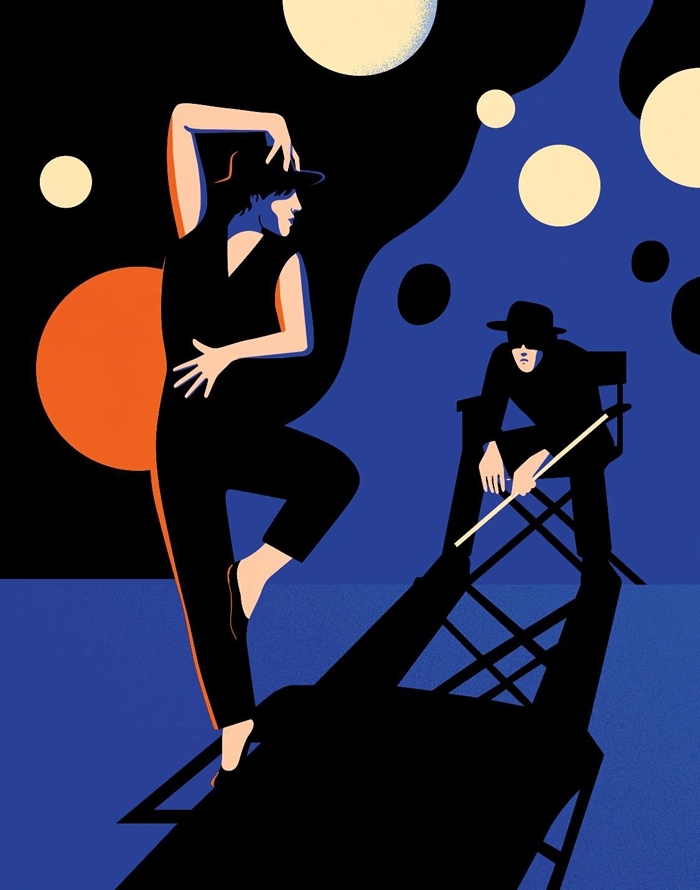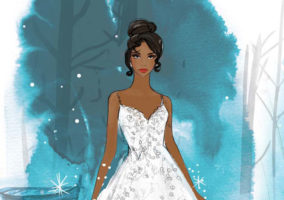
Kittens, we’ve been a bit remiss in giving you a reading list these past few weeks, but with our book deadline looming, we’re trying to make a concerted effort to get back to the content level we like to see on this site. In that vein, here are a bunch of articles and essays that tickled our fancies this week. Enjoy!
“Fosse/Verdon” and “Documentary Now!” parse the gender politics of artistic mastery and the difference between doormat and muse.
What Does It Take to Be a Female Genius? By Emily Nussbaum at The New Yorker
Jean Andre Antoine uses a camera from 1947 and spends nearly every day working the same SoHo block.
Who Says Old-Fashioned Street Photography Is Dead? By Steven Kurutz at The New York Times
My parents never mentioned wearing the hijab to me because wearing it must be a choice and I was so vocal about wanting to be a television reporter. Now, looking back on it, I realize they were also creating a space where I could find my own individuality.
Wearing a Hijab Changed the Way I See Myself, and the World By Noor Tagouri at InStyle
Fosse’s first self-conceived Broadway show, Sweet Charity, had transposed Fellini’s Nights of Cabiria—about a woman who works as a prostitute in Rome, hopes for true love, but who is defrauded by the men in whom she trusts—to a Times Square dance hall. The protagonist is drawn with real identification, as well as real cynicism: It’s not her line of work, dancing with men by the song, that sources the pathos—Fosse, refreshingly, mostly avoided “fallen women” tropes—but the fact that she’s stuck in a dead-end gig she hates, with no prospects. She was partly inspired, as Fosse biographer Kevin Winkler notes, by the female dancers Fosse worked with, who made great physical and emotional sacrifices for their craft, only to see their opportunities steeply limited with age.
There’s Gotta Be Something Better Than This by Alexandra Molotow at Hazzlit
Cleary has, of course, been asked if she was like Ramona as a child, and she has answered that she “thought like her” but was much better behaved. Her memoir bears that out. She writes about the adults unflinchingly, but with sympathy, though they are, in her telling, so broken by their circumstances and poverty that they are often petty and cruel to children. In the world of Ramona, the children can be more “badly behaved” because the adults are stronger, steadier, better than their real-life counterparts; the children in Cleary’s fiction do not live in fear of being called names or beaten.
The Real Ramona by Sarah Jaffe at Slate
In a Reddit Ask Me Anything session last year, a buffet owner fielded questions about how old the crab legs are (old) and how bad the oysters are (bad), assuring readers that actually, the sushi is fine to eat if the place is busy, and that they are right to assume that leftover food gets recycled into soups and casseroles. His business, he says, depends on the fact that “No one can really eat more than two pounds [of food at once],” and “not many people can eat one-and-a-half days’ worth of protein or seafood in one sitting.” People really have been kicked out of buffets for eating too much: Famously, in 2004, a Utah couple following the Atkins diet was asked to leave a Chuck-a-Rama after going back to the carved roast beef station for the 12th time.
The Death of the Buffet Chain by Kaitlyn Tiffany at The Goods by Vox
Game of Thrones may be the last show we all watch together the way we used to, on such a tremendous scale. Even if you don’t watch it, you may feelas if you do. So many key incidents on the series — including the Red Wedding, Cersei’s walk of shame, and the death and resurrection of Jon Snow — seeped into the surrounding culture and became synonymous with “shocking plot twist” (or “obligatory plot twist”) even for people who’d never seen a frame of it. It’s a lavishly produced, massively popular piece of entertainment that generates awareness far out or proportion to its legal viewership (between 12 million and 16 million people watch a first-run episode, according to HBO), dominating online TV conversation during consecutive weeks when it airs new installments.
Is Game of Thrones the Last Show We’ll Watch Together? By Matt Zoller Seitz at Vulture
With a measles outbreak in New York City severe enough to lead to an emergency declaration, it’s hard to think of a more glaring source of medical misinformation than Jenny McCarthy. McCarthy is one of the most famous faces of the movement pushing the fallacious link between vaccines and autism, going so far once as to say “we will stand in line for the fucking measles” rather than accept a vaccine she wrongly considered unsafe. Reports of parents holding “measles parties” to infect their kids (and thus put them at risk of a progressive, incurable neurodegenerative disease years later) show just how dangerous that message can be.
Oprah Pushes Junk Science. Why is She Getting a Health Show? By Daniel Summers at The Daily Beast
There are a lot of things to get angry about: children being separated from their parents, Trump saying nice things about marchers in Charlottesville. What is it that bothers you about this?
You do know that plenty of people don’t think that? You do understand that?
Don’t think what?
Don’t think all these things you are saying about Charlottesville. What does he have, a ninety-three-per-cent approval rating, or, let’s say, a hundred per cent, from his base? Let’s say it is, over all, way up, from thirty-eight per cent to fifty per cent, or even higher. And let’s say Latinos are now fifty-per-cent approval for Trump.
That’s not true, but O.K.
Well, whatever.
Brett Easton Ellis Thinks You’re Overreacting by Isaac Chotiner at The New Yorker
[Photo Credit: Illustration by Petra Eriksson/The New Yorker]
Friday Leftovers for the Week of April 7th, 2019 Next Post:
Maisie Williams, Kit Harington, Sophie Turner and Isaac Hempstead Wright at the “Game of Thrones” Belfast Screening
Please review our Community Guidelines before posting a comment. Thank you!



